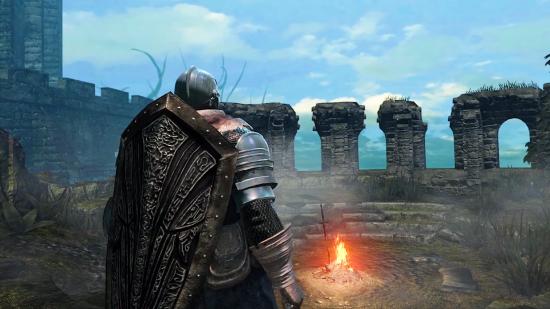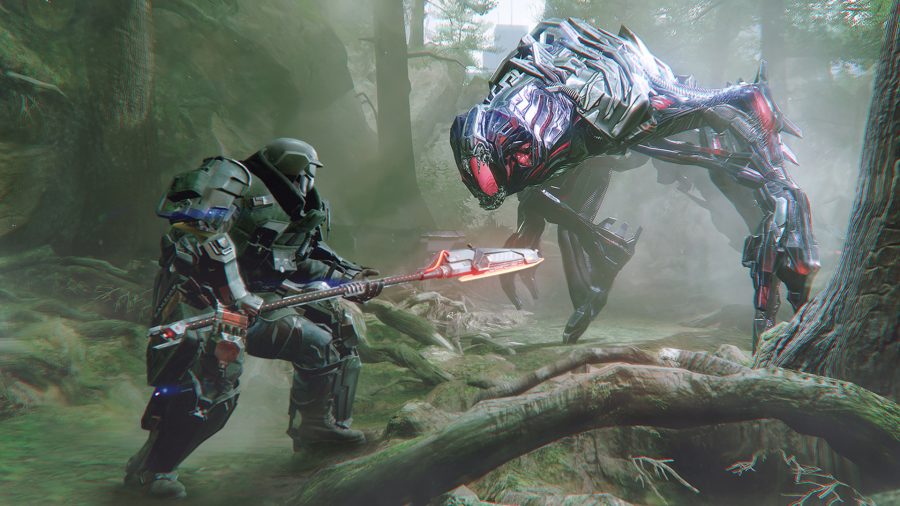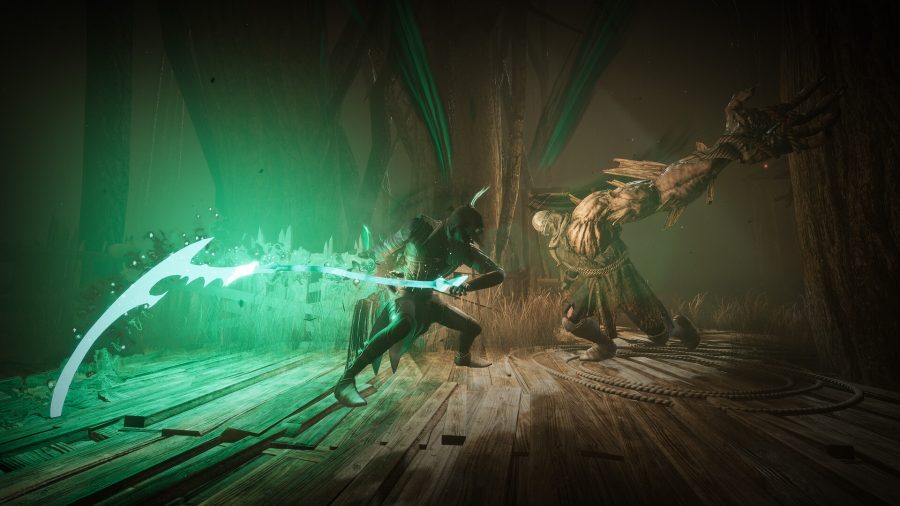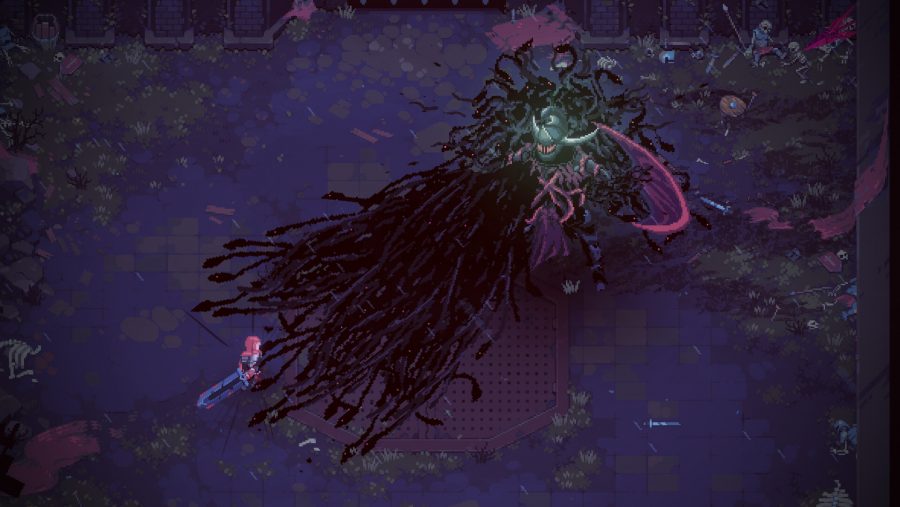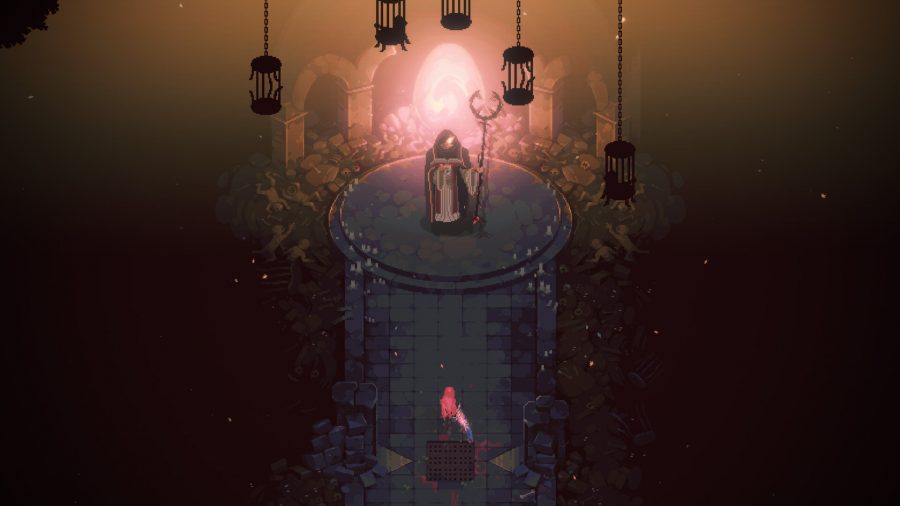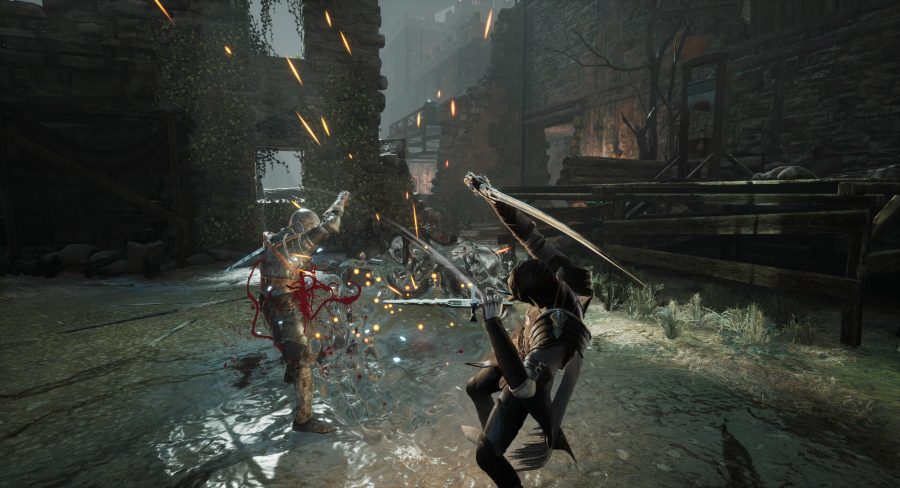After ten years we might have expected the time of Dark Souls to be fading, like the age of fire in the game itself. One of the reasons it and its console-exclusive predecessor, Demon’s Souls, made the impact they did was that they felt refreshingly different from anything else on the market at the time. Now they’re familiar, and many of the mechanics that made them stand out have been compartmentalised and interpreted by hundreds of other studios. ‘Soulslikes’ are now part of the gaming establishment.
Yet the flame burns brightly, and the term ‘Soulslike’ is still enough to pique interest. FromSoftware’s continuing efforts to rejig their own formula with Bloodborne, Sekiro, and perhaps most radically with Elden Ring, have helped fan the flames. But the continuing allure of Souls has also been aided by other studios, from all around the world, creating Souls-inspired games that combine original visions with the challenges and atmosphere we crave.
One of the most prominent studios is Deck13, best known for Lords of the Fallen, The Surge, and its sequel. The Frankfurt-based studio’s action-RPG roots go back further, however, to 2009’s Venetica, and its subsequent work has built on the foundations it established back then, while weaving in specific Soulslike elements.
What particularly stood out about the Souls games for Deck13’s creative director Jan Klose was how they handled combat, emphasising timing, precision, and flexibility. “They serve as a great reference for games that work with close-combat gameplay,” he says, and at a time when many big games were focusing on cinematic experiences, it made sense to try something different. “We believe that gaming is about choice and learning to improve your skills,” adds Klose.
At the same time, Klose doesn’t view the Souls games as a template to follow completely. “We were most inspired by the precision and skill-based aspects of the game,” he says, “but other things didn’t feel like our cup of tea. I think many games can learn from a Soulslike, but integrate the parts that fit best.” It’s an approach that’s clearly visible in The Surge, one of few Soulslike games to move away from a dark fantasy setting.
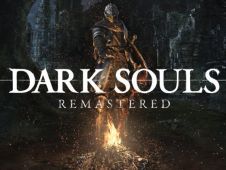 Dark Souls Remastered Dark Souls Remastered $39.99 Buy now Network N earns affiliate commission from qualifying sales.
Dark Souls Remastered Dark Souls Remastered $39.99 Buy now Network N earns affiliate commission from qualifying sales.
With this kind of cherry-picking approach, Klose sees no reason why Soulslike games should run out of steam. “I think that Dark Souls and its successors just broadened the horizons of many game developers and helped bring back challenge-based games, as opposed to just ‘sightseeing’ as you click along,” he says. “I think this was a welcome development for gamers, and one that is here to stay.”
Other studios, like OverBorder, are new to the Soulslike scene. Its flagship title, Thymesia, is set to release in December, and given the tastes of this seven-strong team from Taiwan, it was inevitable they would find inspiration in Souls. “There’s just so much to love in FromSoftware’s games,” says game designer Ross Huang. “Some of the dev team have logged more than 1,000 hours in Dark Souls on Steam.”
They’re especially attracted to the ups and downs in a good Souls journey. “We like the idea of learning through practice, mastering the combat, and the sense of achievement when you finally beat an enemy you’ve been struggling with for a while,” Huang says. “For the development team, these are the most important factors of a Soulslike; we wanted to capture this in Thymesia.”
So how is the team distinguishing Thymesia? “For the most part, Soulslike games include slow-paced, deliberate combat,” Huang says. “With Thymesia we wanted the combat to be faster and more precise.” In other words, there’s a little Sekiro in the mix, but Huang also emphasises the game’s customisation and build options. “We included talent trees that can be unlocked as you progress through the game,” he says, “such as the ability to chain together longer combos, or replace your parry with defence so you don’t need to worry about timing.”
Most intriguing, however, is how Thymesia’s themes of disease and alchemy will infect its systems, such as protagonist Corvus being able to wield ‘plague weapons’ or enter a ‘crow’ form. Plague weapons, which Huang explains can be stolen from enemies, will enable special abilities and attacks alongside your regular armoury, hopefully combining intricate action-game combos with a Soulslike’s challenge and mood.
Of course, not all Soulslike games are 3D action RPG games. Many studios over the past few years have translated the Soulslike formula into two dimensions. The results are often akin to the classic Metroidvania games with which Dark Souls has always shared a family resemblance. Some, however, have tried a different twist, such as this year’s Eldest Souls, a Souls-inspired boss rush game with an isometric perspective.
Eldest Souls is the first game from Rome-based indie game studio Fallen Flag. For co-founder Jonathan Costantini, FromSoft’s Souls series has been a long-term influence. “While growing up in my teenage years, the gaming industry slowly began moving towards more ‘business-like’ development processes,” he says. “When Demon’s Souls came out, it felt like it didn’t really care about anything, besides providing the experience it intended to. For me, it was love at first sight.”
That flame still hasn’t flickered out. “Demon’s Souls and the FromSoftware successors will always remain my favourite games,” Costantini says, and he remains unconcerned that aspects of the formula may have become overused. “Honestly, I don’t think I’ve gotten to the point yet where I find these elements too familiar,” he says. “I still like them and enjoy them when I find them in new Soulslikes.”
Related: Check out our Elden Ring gameplay preview
As for Eldest Souls, “we simply grabbed bits and pieces from our favourite games and tried to give them our own spin.” It’s got Souls’ sombre tone and tense battles, but structurally, as a boss rush game, it’s quite different, swapping RPG style leveling for simple but flexible upgrades. “Thankfully we found a fresh mix of all those elements to let our game stand out enough within the market”, Costantini says.
With plenty of developers taking this range of approaches, it seems that Soulslike design is in good health. Yet one concern that always seems to haunt these games – an aspect of them which, notably, every developer we spoke to enjoyed – is their difficulty. The Souls name is synonymous with a stiff challenge, which rubs against increasing expectations on games to accommodate a wide range of skill levels. Will Soulslike games always have an air of exclusivity for so-called ‘hardcore’ gamers?
For Fallen Flag, it was important not to alienate players, but they didn’t go as far as offering lower difficulty settings. “From the point of view of the Studio, challenge is everything,” Costantini says. “Making the game too easy renders it trivial, while making it too hard causes players to quit before getting into the meat of it.”
They instead hoped to smooth over the onboarding process for players by removing the ruthless and opaque welcome associated with the Souls format. “Difficulty tuning has probably been the hardest challenge for an inexperienced team such as ours,” Costantini says. “While we provide a good tutorial, I believe the game is very challenging, escalating from the early game experience to the complete, sadistic madness of NG+ runs.”
OverBorder also feels a fixed challenge level is crucial, but the goal was not simply to make a hard game. “We want people to go into Thymesia and learn the different enemies, and how to best counter them,” Huang says. With that in mind, there should be in-game methods to ease potential blockages. “Different plague weapons are more effective in various situations and trying potions with different effects can turn the tide of battle quite drastically,” he explains.
Ultimately, however, perhaps the difficulty question is best approached by looking at the breadth of today’s Soulslike experiences, rather than individual titles. Klose believes that, overall, the landscape has become less hostile. “I think as the genre has matured,” he says, “it’s opened up to a broader range of gamers. Different games cater to different audiences, allowing gamers with more general tastes to also succeed.”
In this sense, the legacy of Dark Souls isn’t a particular kind of challenge, or setting, or genre, but its versatility. It’s hard to argue otherwise after even Nintendo sprinkled a pinch of Souls into The Legend of Zelda: Breath of the Wild. The overall impact of FromSoft’s series on game design is what truly matters. And as the last decade has shown, it’s become broad enough to produce something for everyone.
